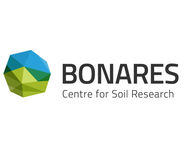Rebound Effects in Irrigated Agriculture in Uzbekistan: A Stakeholder-Based Assessment (2022)
Hamidov A., Kasymov U., Djumaboev K., Paul C.
Sustainability, 14 (14), 8375
Abstract
There is wide consensus among scholars and practitioners that improved irrigation technologies increase farm productivity and improve resource use efficiency. However, there is also growing empirical evidence that efficiency improvements in irrigation water use may create rebound effects, i.e., they may trigger changes in farmers’ behavior that partly or fully offset the technical water savings expected under ceteris paribus conditions. In extreme cases, total water consumption may even increase. We studied the impacts of introducing water-saving irrigation technologies in Uzbekistan and used structured stakeholder interviews for an expert-based assessment of potential rebound effects. Our findings contribute to the understanding of impacts of technological and institutional responses to environmental and economic pressures in sustaining water resources. The study demonstrates that although the objective of increasing irrigation efficiency may be achieved, the actual water savings under Uzbek conditions are likely to be reduced due to rebound effects. Unless there are effective policy interventions, we expect rebound effects through an increase in water supply for crops that compensates for current shortages of irrigation water availability, an increase in irrigated area, a switch to more water-intensive crops, and overall economic growth. The findings of this paper provide a reference point for estimating the water-saving potential and for evaluating and adapting policies.